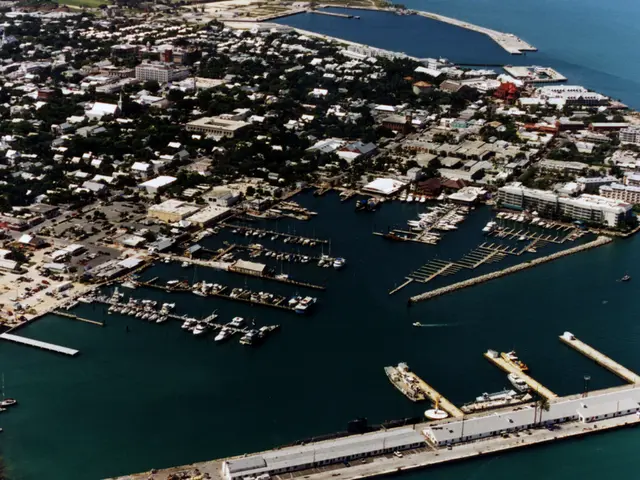Israel advocates for assuming administrative control over Gaza City, action which has stirred widespread disapproval
The Israeli government's recently approved plan to take control of Gaza City has sparked a wave of criticism and concern from both international and internal sources. The plan, which aims to place Gaza City under siege by October 7, 2025, and eventually establish full operational control, has been perceived as a risky and potentially disastrous military approach.
Israeli military sources have reportedly opposed the plan, warning of high casualties among soldiers and civilians, and the potential for the strategy to play into Hamas’s hands. The Israeli cabinet's authorisation of this plan has led to a chorus of condemnation from various humanitarian organisations, international bodies, and political leaders.
Humanitarian organisations have strongly condemned the situation, highlighting Israel's restrictions on aid into Gaza. Despite official Israeli claims denying these restrictions, major NGOs have been unable to deliver life-saving supplies since early March 2025, leading to severe starvation and a humanitarian crisis. Over 100 organisations have called for an end to the weaponisation of aid by Israel and urged the lifting of the blockade on aid and commercial supplies.
The UN and other human rights entities have reported severe civilian casualties linked to food access attempts in Gaza. Over a thousand Palestinians have been killed while seeking food, most by Israeli forces, underscoring grave humanitarian and legal concerns about the conduct of the Israeli military operations amidst the siege.
The Hostage and Missing Families Forum has criticised the plan, stating it amounts to abandoning the captives. According to Hamas-run Gaza's health ministry, Israel's offensive has killed at least 61,258 Palestinians. Hamas has warned that the operation to take control of Gaza City will "cost Israel dearly" and that expanding the aggression means sacrificing the hostages.
Israeli opposition leader Yair Lapid denounced the cabinet's move as leading to many disasters, including the death of hostages, the killing of soldiers, costing taxpayers tens of billions, and diplomatic bankruptcy. The 2023 attack on Israel resulted in the deaths of 1,219 people, according to an AFP tally based on official figures.
The new plan has triggered criticism from China, Turkey, the UK, the UN's rights chief, and Germany. Germany has halted military exports out of concern they could be used in Gaza. The Israeli army currently controls 75% of the Gaza Strip, mainly from its positions along the border. Under the new plan, the Israeli army will prepare to take control of Gaza City and distribute humanitarian assistance to civilians outside combat zones.
However, international concern has been growing over the suffering of Palestinians in Gaza, where a UN-backed assessment has warned that famine is unfolding. The UN estimates that Gaza needs at least 600 trucks of aid per day to meet residents' basic needs. Despite Israel partially easing restrictions on aid entering Gaza in late July, the United Nations says the amount allowed into the territory remains insufficient.
Israel occupied Gaza from 1967 but withdrew its troops and settlers in 2005. Netanyahu wants a "security perimeter" and to hand the Palestinian territory to "Arab forces that will govern it properly without threatening Israel." Netanyahu previously stated that Israel planned to seize complete control of the Gaza Strip, but not govern it.
The current international reactions to Israel's newly approved plan to "defeat" Hamas and take control of Gaza City are highly critical and concerned, focusing on the humanitarian consequences and military feasibility. Israeli internal dissent from military officials further signals complexities and reservations about the feasibility and consequences of the plan.
- The International community, including China, Turkey, the UK, Germany, and the UN's rights chief, have expressed criticism and concern regarding Israel's newly approved plan to take control of Gaza City.
- Turkish political leaders have joined various humanitarian organizations in condemning Israel's restrictions on aid into Gaza, which they believe have led to a severe humanitarian crisis and starvation in Gaza.
- Israeli opposition leader Yair Lapid has expressed concerns about the potential humanitarian consequences, diplomatic bankruptcy, and loss of hostages if the plan to take control of Gaza City is executed.
- The Hostage and Missing Families Forum, along with Hamas, have voiced their concerns that the plan will result in the abandonment of captives and the escalation of violence, which may increase the risk of hostage deaths.








